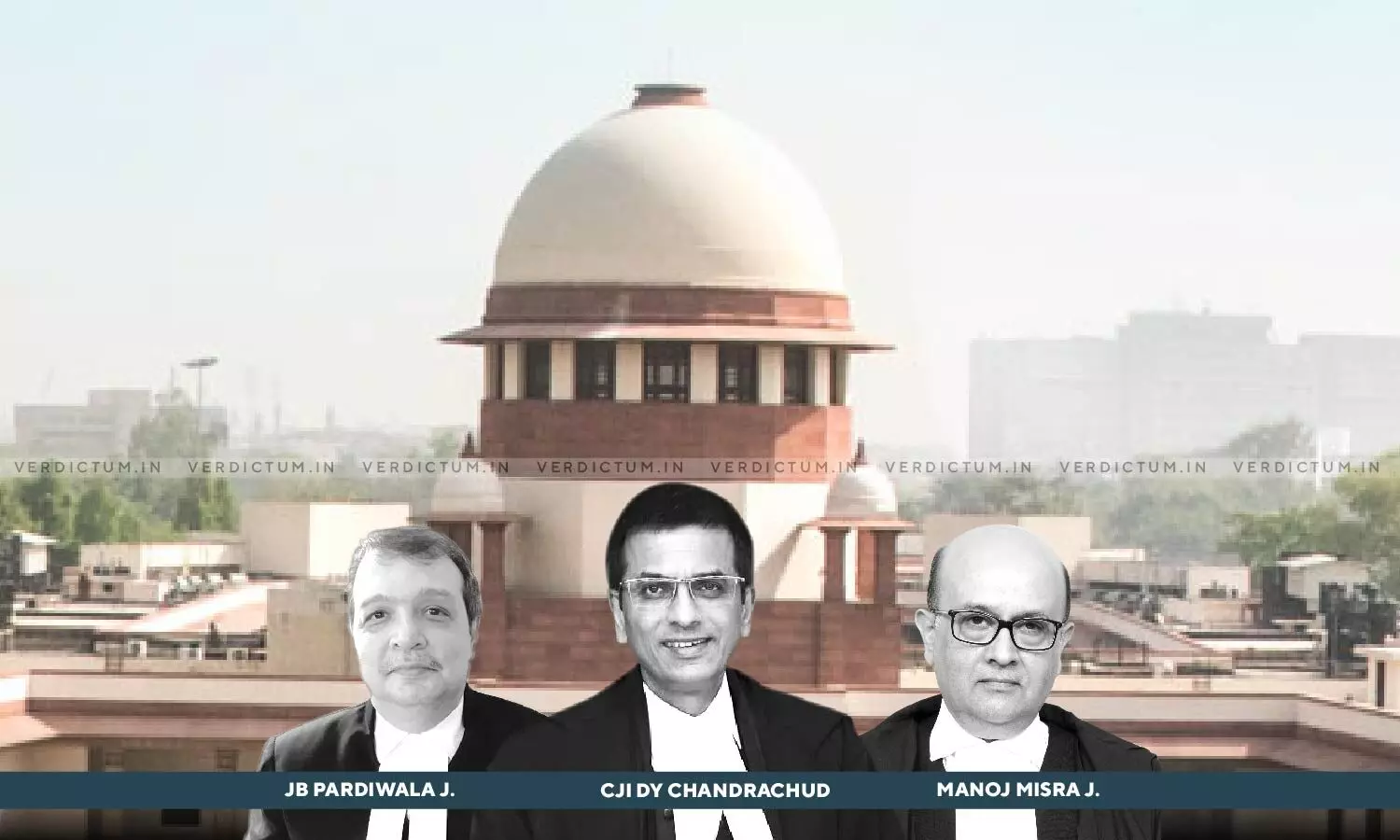
Arbitral Tribunal Can Direct Party Found To Have Caused Unnecessary Harassment To Other Party To Bear Costs Of Arbitration: SC
 |
|The Supreme Court held that the arbitral tribunal may direct the party found to have abused the process of law and caused unnecessary harassment to the other party to bear the costs of the arbitration.
The Court allowed the petition filed by a petitioner under Section 11(6) read with Section 11(12)(a) of the Arbitration and Conciliation Act, 1996 (the Act) seeking appointment of an arbitrator for the adjudication of disputes and claims in terms of a Shareholders Agreement entered into between the petitioner and the respondents.
The Bench comprising Chief Justice D.Y. Chandrachud, Justice J.B. Pardiwala and Justice Manoj Misra held, “However, some parties might take undue advantage of such a limited scope of judicial interference of the referral courts and force other parties to the agreement into participating in a timeconsuming and costly arbitration process. This is especially possible in instances, including but not limited to, where the claimant canvasses either ex facie time-barred claims or claims which have been discharged through "accord and satisfaction", or cases where the impleadment of a non-signatory to the arbitration agreement is sought etc. In order to balance such a limited scope of judicial interference with the interests of the parties who might be constrained to participate in the arbitration proceedings, the arbitral tribunal may direct that the costs of the arbitration shall be borne by the party which the Tribunal ultimately finds to have abused the process of law and caused unnecessary harassment to the other party to the arbitration.”
Advocate Vilas Giri represented the appellants, while AOR Jasmine Damkewala appeared for the respondents.
As per the agreement, the petitioner was allotted 4,00,000 equity shares of ASAP Fluids Pvt. Ltd., with the respondents acknowledging his participation in the management. The petitioner stated that despite repeated requests, the respondents did not issue share certificates for the shares, which prevented him from exercising his rights under the agreement. The petitioner issued an Arbitration Notice to the respondents, requesting either the issuance of share certificates or the return of the equivalent value.
The Bombay High Court initially dismissed the application, noting that it was an international arbitration due to the petitioner's residence in Dubai. Subsequently, the petitioner approached the Supreme Court to consider the appointment of an arbitral tribunal to adjudicate the claims under the Shareholders Agreement.
The Supreme Court reiterated the well-settled law that, at the stage of Section 11 application, the referral Courts need only to examine whether the arbitration agreement exists– nothing more, nothing less. “This approach upholds the intention of the parties, at the time of entering into the agreement, to refer all disputes arising between themselves to arbitration,” the Bench stated.
The Bench remarked, “Therefore, while determining the issue of limitation in the exercise of powers under Section 11(6) of the Act, 1996, the referral court must only conduct a limited enquiry for the purpose of examining whether the Section 11(6) application has been filed within the limitation period of three years or not. At this stage, it would not be proper for the referral court to indulge in an intricate evidentiary enquiry into the question of whether the claims raised by the petitioner are time barred. Such a determination must be left to the decision of the arbitrator.”
Noting that the primary issue that was canvassed by the respondents was that the substantive claims of the petitioner were ex-facie time barred and therefore, incapable of being referred to arbitration, the Court stated, “This Court cannot conduct an intricate evidentiary enquiry into the question of when the cause of action can be said to have arisen between the parties and whether the claim raised by the petitioner is time barred. This has to be strictly left for the determination by the arbitral tribunal.”
Accordingly, the Supreme Court allowed the petition.
Cause Title: Aslam Ismail Khan Deshmukh v. Asap Fluids Pvt. Ltd. & Anr. (Neutral Citation: 2024 INSC 849)
Appearance:
Appellants: AOR Kunal Cheema; Advocate Vilas Giri
Respondents: AOR Jasmine Damkewala; Advocate Vaishali Sharma